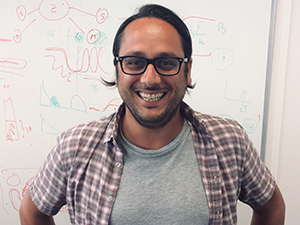Giving patients with suspected bladder cancer an MRI scan before surgery could mean they would be treated more quickly, leading to fewer deaths due to the disease, new research suggests.
Researchers from the University of Birmingham and The Institute of Cancer Research, London presented the results of the BladderPath trial today at the ESMO Congress 2025 in Berlin.
Fewer delays in diagnosis
The findings, funded by the National Institute for Health and Care Research, show that adding an initial MRI for patients with possible muscle-invasive bladder cancer (MIBC) prior to a usual procedure led to fewer delays in diagnosis (42 per cent among those receiving MRI first vs 54 per cent on standard pathway) and fewer bladder cancer specific deaths (10 per cent on MRI pathway vs 18 per cent on the standard pathway).
The BladderPath trial was a multistage randomised controlled trial across 15 sites in the UK that recruited 143 participants newly presenting with a bladder mass following initial exploratory diagnosis. Participants were randomised to either enter the standard pathway, in which they would go onto a waiting list for transurethral resection of bladder tumour (TURBT), or the experimental pathway which added multiparametric MRI prior to TURBT.
‘Not only can we cut the time taken to receive treatment – we can cut bladder cancer deaths’
Professor Nick James from The Institute of Cancer Research, London and chief investigator of the BladderPath trial said:
“This research shows that by adding an MRI pre-biopsy, not only can we cut the time taken to receive treatment – but importantly, we can cut deaths due to bladder cancer.
“An MRI is considerably cheaper than the surgical bladder tumour resection (TURBT) and the pre-surgery imaging allows some patients to either avoid surgery altogether or have a more limited procedure. We estimate that this new diagnostic pathway will save money, save surgical theatre space and hospital bed days, and prevent patients from undergoing unnecessary procedures. We’re now pleased to say that this research shows that the pathway will also save lives, and I hope that it will be put into practice immediately."
‘This simple change to the patient pathway saves lives’
Professor Richard Bryan from the University of Birmingham and one of the investigators of the BladderPath trial said: “Previous studies have shown that adding MRI to the existing pathway for bladder cancer diagnosis can vastly speed up time to definitive treatment which is crucial. The bladder cancer diagnostic pathway has remained essentially unchanged for more than 30 years while the rest of medicine and healthcare has innovated around it.
“These latest results show that new approaches can make a significant difference. Our data confirms that changes to the usual diagnostic pathway could have a significant impact for patients, not only speeding up time to correct diagnosis and treatment, but also reducing failure events and increasing the odds of surviving bladder cancer.
“This simple change to the patient pathway saves lives. There is no reason for it not to be adopted and implemented immediately."
.tmb-propic-md.jpg?Culture=en&sfvrsn=c25d2b2f_9)
 .
.
